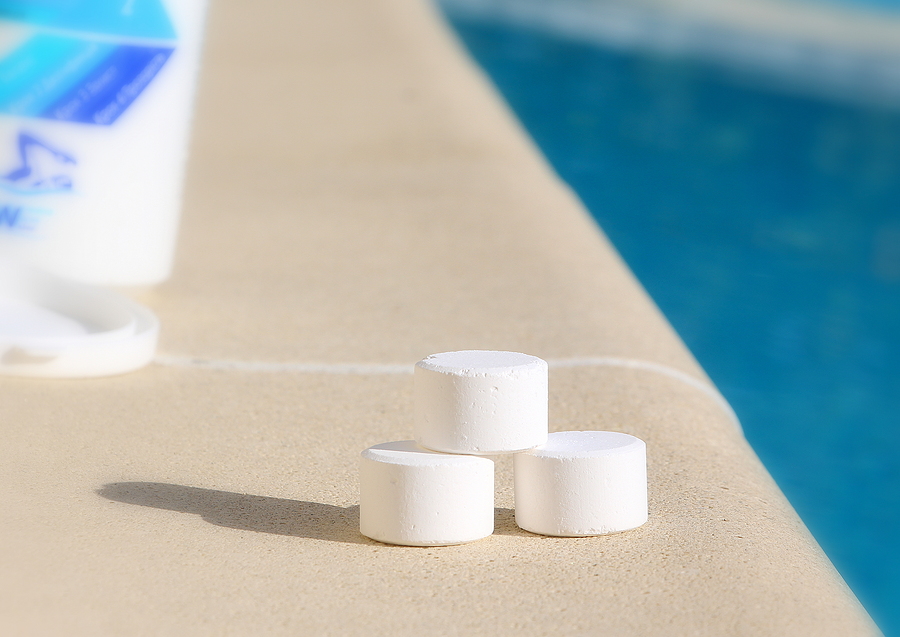Swimming Pool Service Tips – Chlorine Vs. Bromine
There is no one size fits all solution when sanitizing a swimming pool. Different pool chemicals have advantages and disadvantages that make them better suited for certain situations. A professional swimming pool service will know exactly what chemicals to use and when, but things aren’t so easy for the layperson. So what exactly is the difference between sanitizing a pool with Chlorine and Bromine?
The Process
The first step in understanding the difference between Bromine and Chlorine is analyzing how they work to sanitize pool water. To put it simply, chlorine oxidizes contaminants in the water while Bromine ionizes them. “Ionizing contaminants” refers to a reaction that reverses the polarity of the chemical bonds that hold the contaminants together. “Oxidizing contaminants” refers to killing bacteria from the inside of the cell, working its way outward. These two processes occur at different rates. Chlorine begins the oxidation process and sanitizes the water quite quickly when compared to Bromine.
Swimming Pool Service Considerations
When deciding which chemical to use during swimming pool service, it’s important to take a look at the advantages and disadvantages of your options.
Price
Let’s start with the price. Chlorine products are slightly less expensive than Bromine. The prices aren’t significantly different per unit but, over time, these costs add up. The price difference is also significant for commercial swimming pools that need much more sanitizer to get the job done.
Indoor/outdoor Pools
The next consideration has to do with UV rays. Chlorine has a resistance to UV rays breaking the chemical down while Bromine does not. This makes Chlorine better suited for outdoor swimming pools. Bromine is the better choice for indoor swimming pools, as it is less irritating to the eyes and nose.
Hot Water
While both sanitizers are used during swimming pool service in warmer conditions, Bromine remains stable and works better in temperatures above 75 degrees fahrenheit than Chlorine. On the flip side, Chlorine actually functions better than Bromine in more moderate temperatures, making it the better option for an unheated swimming pool.
pH
It’s important to note that Bromine is more effective in high pH situations. While it is always important to aim for an ideal pH balance, certain swimming conditions can make a pool skew higher or lower on the pH scale. Bromine is better suited for high pH.
Protozoa
Certain conditions are more susceptible to protozoa growth in the swimming pool. Chlorine does not fare well against protozoa. If your swimming pool is prone to protozoa growth, Bromine is the smarter selection.
Turbid Waters
Turbidity means “the state or quality of being clouded or opaque, usually because of suspended matter or stirred-up sediment.” When a swimming pool is turbid, that means it is cloudy and difficult to see through due to contaminants in the water. Chlorine is less effective in these situations than Bromine.
Swimming Pool Service Experts
Keep in mind, these are just the bare essentials of water chemistry knowledge for swimming pool service. If you would rather have the professionals take care of the job, it’s best to go with a trusted company like Pool Operation Management.
You can learn more about this topic and much more by becoming a Certified Pool Operator ®. The CPO® certification class is a great start to becoming a pool expert. Pool Operation Management’s award-winning CPO certification courses train you how to properly operate a swimming pool.
Our two-day courses offer a wealth of information and training in everything from pool chemicals, to energy conservation to surface water removal. If you have no interest in learning, we can take care of the maintenance with both residential and commercial pool cleaning services! For the very best in everything related to pools, contact us today.







